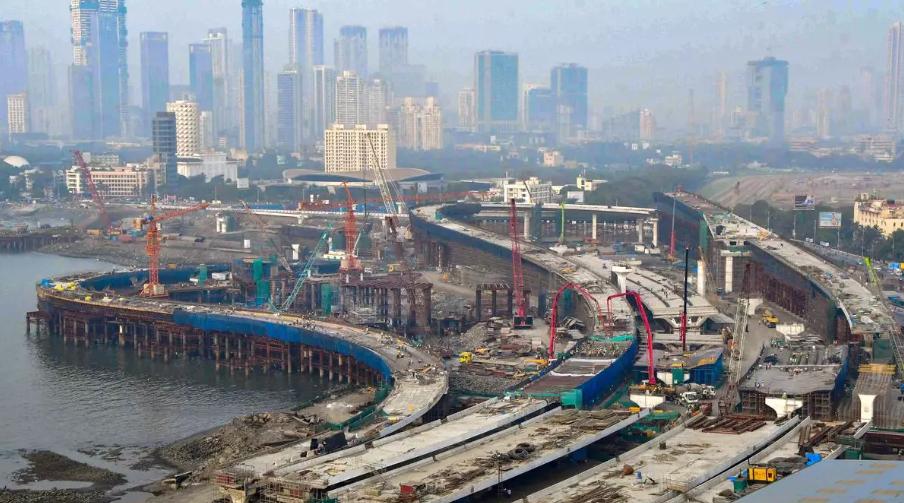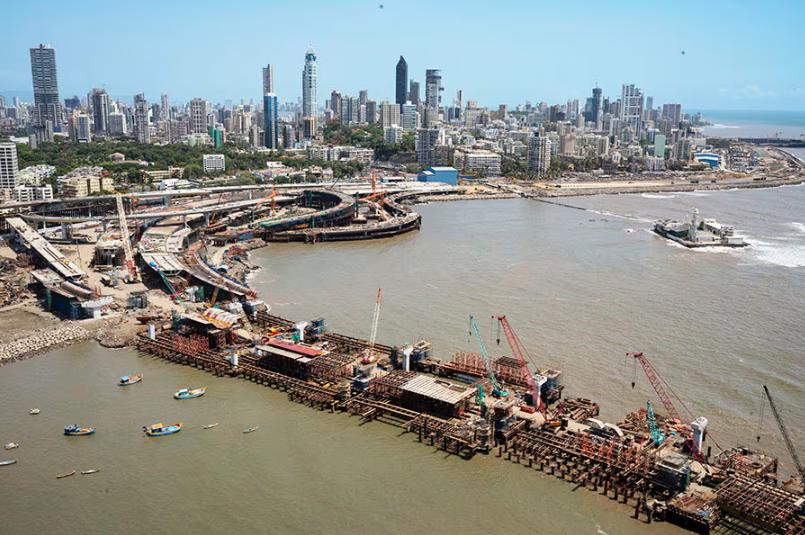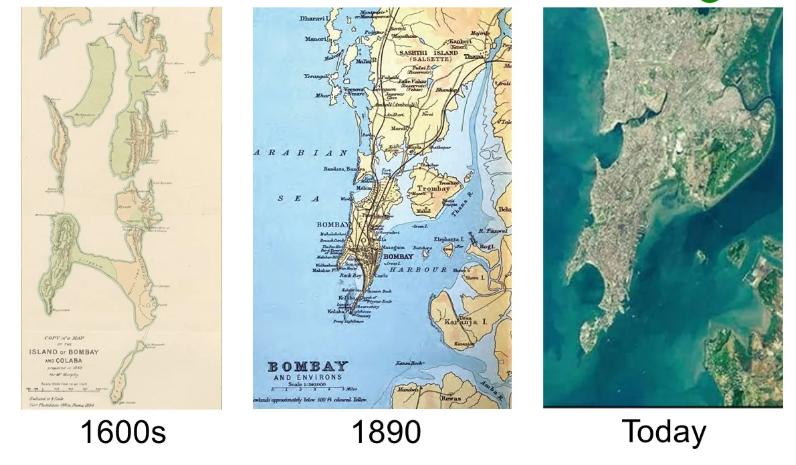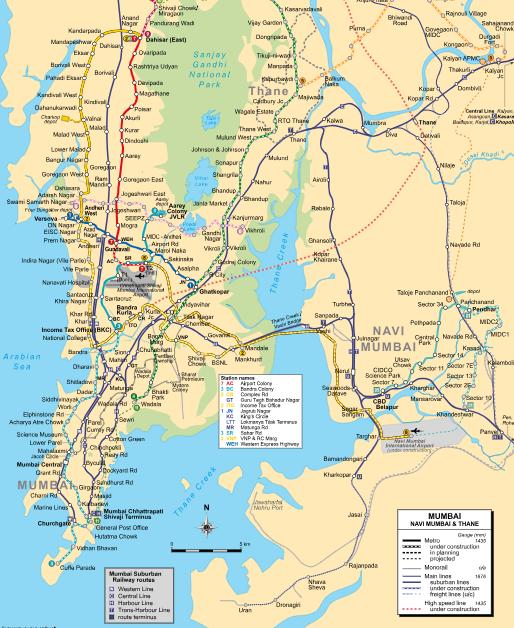


Table of Contents
- Introduction
- Why Redevelopment is Booming in Mumbai: A Rising Trend
- Opportunities in Redevelopment in Mumbai
- Challenges in Redevelopment in Mumbai
- How Much Majority is Required for Redevelopment in Mumbai?
- How Many Buildings are Under Redevelopment in Mumbai?
- Which is the Fastest Growing Area in Mumbai?
- Conclusion
- Faq's
Introduction
Mumbai, one of India's most densely populated cities, has seen significant transformations in its real estate sector in recent years. The rising trend of redevelopment, particularly in older residential and commercial buildings, is reshaping the city's skyline. As Mumbai continues to grow, redevelopment projects are not only transforming the city's infrastructure but also presenting unique opportunities and challenges for developers, investors, and residents alike. In this article, we will explore the factors driving redevelopment in Mumbai, the opportunities it presents, and the challenges that come with it.

Why Redevelopment is Booming in Mumbai: A Rising Trend
Mumbai's skyline is changing at an unprecedented rate, and redevelopment is one of the key drivers behind this transformation. Several factors contribute to the booming redevelopment trend in the city:
-
Aging Infrastructure: Many buildings in Mumbai, especially those built in the 1950s and 1960s, are now structurally unsafe or outdated. Redeveloping these buildings allows for the construction of modern, safer, and more efficient structures.
-
Limited Space: With Mumbai being one of the most congested cities in the world, available land for new construction is limited. Redevelopment projects offer a solution by repurposing existing buildings, increasing the available living space.
-
Government Incentives: The Maharashtra government's policies, such as the Mumbai Development Plan and FSI (Floor Space Index) incentives, make redevelopment projects more viable for developers. These policies offer increased construction capacity and tax benefits, stimulating redevelopment in high-demand areas.
-
High Demand for Housing: With a growing population and increasing migration to Mumbai for better employment opportunities, there is a huge demand for residential spaces. Redevelopment allows for the creation of affordable housing, especially in prime locations.
-
Real Estate Investment Potential: Developers are attracted to redevelopment projects due to the high return on investment (ROI), particularly in areas that are well-connected to key commercial hubs like Bandra-Kurla Complex (BKC) and Nariman Point.

Opportunities in Redevelopment in Mumbai
Improved Infrastructure: Redevelopment offers an opportunity to build state-of-the-art infrastructure, including modern amenities like gymnasiums, swimming pools, and green spaces, contributing to a better quality of life for residents.
-
Affordable Housing: Redevelopment in Mumbai is crucial in addressing the city's housing shortage. It opens doors for developers to build affordable housing units for the growing middle class.
-
Revitalizing Old Areas: Many old and dilapidated neighborhoods are undergoing redevelopment, which not only improves the quality of living but also boosts property values and attracts new investments to these areas.
-
Eco-Friendly Developments: Many redevelopment projects are now focusing on sustainability with eco-friendly features such as solar panels, rainwater harvesting, and green building certifications (like LEED), making them an attractive investment for environmentally conscious buyers.
-
Boost to Real Estate Value: Redeveloping old, undervalued properties can significantly increase the market value, benefiting developers and investors with high returns.
Challenges in Redevelopment in Mumbai
Land Acquisition Issues: A major challenge in redevelopment projects is acquiring land from multiple owners, especially in areas where buildings are owned by co-operative societies. Securing consensus can be time-consuming and complicated.
-
Displacement of Residents: Redevelopment often leads to the displacement of existing residents who may be unwilling to move or may face difficulties in adjusting to new living arrangements. Ensuring a smooth relocation process is a significant challenge.
-
Legal and Bureaucratic Hurdles: The redevelopment process in Mumbai is often delayed by legal disputes, red tape, and lengthy approval processes. The slow pace of obtaining the necessary permits can cause delays and cost overruns.
-
Financing and Risk: Redevelopment projects are capital-intensive and involve significant financial risks. Developers must manage costs effectively and ensure that the project remains profitable despite unforeseen delays and challenges.
-
Community Resistance: In some cases, local communities and residents may resist redevelopment due to concerns over increased traffic, loss of heritage, or environmental degradation. Managing these concerns is crucial for successful redevelopment projects.
 Evolution of Mumbai
Evolution of Mumbai
How Much Majority is Required for Redevelopment in Mumbai?
In Mumbai, a 70% to 80% majority of residents in a building or society is required to approve a redevelopment project. This ensures that the project has enough support from the people who will be directly affected. Once the majority is obtained, developers can move ahead with the planning and construction stages. However, obtaining the consent of this majority can be a lengthy and sometimes contentious process.
How Many Buildings are Under Redevelopment in Mumbai?
As of recent estimates, more than 15,000 buildings in Mumbai are currently under redevelopment, particularly in areas such as Dadar, Byculla, Matunga, and Worli. This includes both residential and commercial properties. With the rapid pace of urbanization, the number of buildings undergoing redevelopment is expected to grow in the coming years.
Which is the Fastest Growing Area in Mumbai?
Some of the fastest-growing areas in Mumbai due to redevelopment include:
-
Bandra-Kurla Complex (BKC): Once an industrial zone, BKC has transformed into a thriving business district. Redevelopment has turned it into one of the most sought-after commercial and residential areas in Mumbai.
-
Worli: With its proximity to South Mumbai and commercial hubs, Worli is undergoing significant redevelopment. It has seen a rise in luxury apartment complexes and commercial buildings.
-
Lower Parel: This area has evolved from an industrial zone to a major commercial and residential hub. Redevelopment here has seen the rise of premium apartments and office spaces.
-
Kandivali East and Andheri West: These suburban areas have witnessed rapid development due to an influx of both residential and commercial projects. The availability of land and better connectivity to the rest of Mumbai is fueling this growth.
 Mumbai's Map
Mumbai's Map
Conclusion
Redevelopment in Mumbai is more than just a trend, it is a necessity driven by the city's aging infrastructure, growing population, and limited available land. While there are significant opportunities in terms of increased property value, better infrastructure, and affordable housing, there are also challenges related to legal, financial, and community concerns. As Mumbai continues to grow and evolve, the success of redevelopment projects will largely depend on how well these challenges are managed. Whether you're an investor, developer, or resident, understanding the dynamics of redevelopment will help you navigate the booming real estate market in Mumbai.
explore further
Latest from Location Reviews
More from Recommendations
Resources
Dwello, for every home buyer, is a way to go from 'I feel' to 'I know', at no extra cost.


